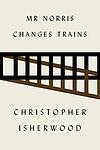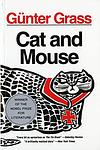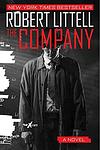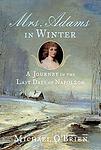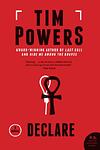The Greatest "Historical fiction, Berlin" Books of All Time
Click to learn how this list is calculated.
This list represents a comprehensive and trusted collection of the greatest books. Developed through a specialized algorithm, it brings together 300 'best of' book lists to form a definitive guide to the world's most acclaimed books. For those interested in how these books are chosen, additional details can be found on the rankings page.
Genres
Historical fiction is a genre of literature that combines fictional stories with real historical events, settings, and characters. These books often take place in a specific time period and are based on research and factual information, but also include imaginative elements to create a compelling narrative. Historical fiction allows readers to experience the past in a unique and engaging way, while also providing insight into the social, cultural, and political issues of the time.
Countries
Date Range
Reading Statistics
Click the button below to see how many of these books you've read!
Download
If you're interested in downloading this list as a CSV file for use in a spreadsheet application, you can easily do so by clicking the button below. Please note that to ensure a manageable file size and faster download, the CSV will include details for only the first 500 books.
Download-
1. Effi Briest by Theodor Fontane
This novel explores the life of a 17-year-old girl who is married off to a much older man, a high-ranking official, for the sake of social and financial stability. Despite her husband's devotion, she embarks on a passionate, but doomed affair with a charming, yet manipulative, major. The affair ends disastrously, leading to her social ostracization and eventual descent into loneliness and despair. The book serves as a critique of the rigid Prussian society of the late 19th century.
-
2. The Reader by Bernhard Schlink
"The Reader" is a poignant narrative centered around a young German boy's complex relationship with an older woman, who later turns out to be a former Auschwitz guard. Their relationship begins with her teaching him to read, but takes a drastic turn when she disappears, only to reemerge on trial for war crimes. The novel explores themes of guilt, shame, and redemption, as the boy, now a law student, grapples with his feelings for a woman he once loved, but whose past actions he cannot reconcile with.
-
3. Goodbye to Berlin by Christopher Isherwood
This novel is a semi-autobiographical account of the author's experiences in 1930s Berlin. The protagonist, a young Englishman, observes and documents the lives of a wide range of characters, from the working class to the upper class, all against the backdrop of the rising Nazi regime. The book offers a vivid and poignant portrayal of Berlin and its inhabitants during a time of great political and social upheaval.
-
4. Mr Norris Changes Trains by Christopher Isherwood
This novel follows the story of a young Englishman living in Berlin during the early 1930s, who meets and befriends the charming yet mysterious Mr. Norris. As their friendship develops, the protagonist becomes entangled in Mr. Norris's world of political intrigue, espionage, and shady business dealings. The novel is a vivid portrayal of the decadence, political tension, and looming danger of Berlin on the brink of Nazi rule.
-
5. Cat and Mouse by Günter Grass
"Cat and Mouse" is a novel that centers around a group of boys living in Danzig during World War II. The story is narrated by one of the boys, who recounts the life of his friend, whom they call "the great Mahlke", a boy with a large Adam's apple. Mahlke's attempts to prove himself a hero despite his physical oddity, his obsession with a sunken ship, and his eventual expulsion from school and enlistment in the war form the heart of the narrative. The novel explores themes of identity, guilt, memory, and the devastating impact of war on the individual and society.
-
6. Fatherland by Robert Harris
Set in an alternate history where Nazi Germany won World War II, the novel follows a German detective who uncovers a vast conspiracy while investigating a murder. As he delves deeper into the case, he realizes that the government is hiding a monumental secret that could shake the very foundations of the Reich. His pursuit of the truth leads him into a dangerous game of cat and mouse with the state's oppressive security forces, challenging his loyalty to the regime and forcing him to confront the moral complexities of a world dominated by fascism.
-
7. War and Remembrance by Herman Wouk
The novel is a historical saga that continues the story of an American family during World War II. It follows the naval career of one of the family members, his experiences in the Pacific, and his struggles with his marriage. Simultaneously, the narrative also focuses on the harrowing experiences of his Jewish relatives in Europe, who are caught in the horrors of the Holocaust. The novel provides a detailed account of the war on multiple fronts, both personal and political, and explores themes of love, loss, and the human capacity for survival.
-
8. Every Man Dies Alone by Hans Fallada
The book is a gripping tale of quiet resistance set in Nazi Germany, based on a true story. It follows a working-class couple who, after losing their son in the war, decide to stand against the oppressive regime by distributing postcards with anti-Nazi messages throughout Berlin. Their clandestine operation, though small in scale, becomes a symbol of personal defiance and moral conviction in the face of overwhelming fear and totalitarian control. As their acts of rebellion continue, they must evade the Gestapo's increasing efforts to hunt them down, leading to a tense and poignant exploration of courage, resilience, and the impact of individual actions in a society dominated by tyranny.
-
9. March Violets by Philip Kerr
Set in 1936 Berlin, the narrative follows a hard-boiled private investigator navigating the treacherous terrain of Nazi Germany. Tasked with solving a high-profile case involving the theft of a diamond necklace and the murder of a wealthy industrialist's daughter and her husband, the detective delves into a world where political intrigue, corruption, and the rising tide of fascism intersect. As he uncovers more about the case, he finds himself entangled in the dangerous machinations of the Third Reich, revealing a sinister backdrop of power, betrayal, and moral ambiguity. This gripping tale masterfully combines historical detail with the classic elements of noir fiction, presenting a vivid portrayal of a society on the brink of moral collapse.
-
10. The Company by Robert Littell
This espionage novel delves into the intricate and shadowy world of the CIA, spanning from the early days of the Cold War in the late 1940s through to the collapse of the Soviet Union in 1991. Through the eyes of both fictional and historical figures, the narrative weaves a complex tapestry of loyalty, betrayal, and the moral ambiguities of intelligence work. The story follows the lives, careers, and personal sacrifices of CIA operatives as they engage in covert operations, counterintelligence, and the struggle against the KGB. The novel offers a gripping and detailed exploration of the global chess game between the United States and the Soviet Union, highlighting the personal and political costs of espionage.
-
11. Mrs. Adams In Winter by Michael O'Brien
"Mrs. Adams in Winter" is a captivating historical narrative that follows Louisa Catherine Adams, the wife of John Quincy Adams, on her perilous winter journey across Europe in 1815. Amidst the tumultuous backdrop of the Napoleonic Wars, Louisa travels from Russia to France to reunite with her husband in Paris. The book not only details the physical hardships of her journey through a war-torn continent but also delves into her personal struggles and reflections. Through this intimate portrayal, the book offers a unique lens on the political and social upheavals of early 19th-century Europe, while highlighting the resilience and complexity of its central figure.
-
12. Declare by Tim Powers
In this supernatural espionage thriller, a British intelligence agent uncovers a secret history of paranormal forces and Cold War intrigue. The protagonist is drawn into a world where mythical creatures and occult rituals are entwined with real historical events, particularly those involving the Soviet Union. As he navigates a shadowy battlefield that spans from the ruins of post-war Europe to the deserts of the Middle East, he must confront a demonic entity and unravel a conspiracy that challenges his understanding of reality, all while grappling with personal demons and a complex love interest. The novel blends historical fact with dark fantasy, creating a unique tapestry of suspense and supernatural warfare.
Reading Statistics
Click the button below to see how many of these books you've read!
Download
If you're interested in downloading this list as a CSV file for use in a spreadsheet application, you can easily do so by clicking the button below. Please note that to ensure a manageable file size and faster download, the CSV will include details for only the first 500 books.
Download


